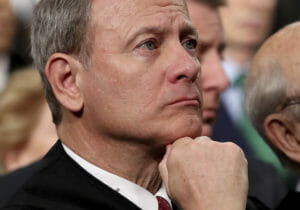Why ‘Berniecare’ Has Legs
Achieving Medicare for all won’t be easy, and the medical industry will fight it, but don’t count Sanders’ health care plan out just yet. Sen. Bernie Sanders in 2010, waving after speaking to a rally in front of the Vermont Statehouse, where supporters of single-payer health care had gathered to say that Obamacare didn't go far enough. (Alden Pellett / AP)
Sen. Bernie Sanders in 2010, waving after speaking to a rally in front of the Vermont Statehouse, where supporters of single-payer health care had gathered to say that Obamacare didn't go far enough. (Alden Pellett / AP)
Hillary Clinton wants incremental improvement in Obamacare to fix its imperfect and increasingly costly collaboration between the federal government and insurance companies. Bernie Sanders wants Medicare for all—Berniecare—with Americans given full medical benefits financed by a moderate tax increase for most people and heavier taxes for the rich.
Clinton would take a baby step, Sanders a leap into a brighter future—risky as all leaps are, but worth it if it succeeds.
As professor Gerald Friedman of the University of Massachusetts Amherst—an architect of the Sanders plan—said in a 2013 speech, “You don’t get change incrementally. … We … can’t cross the chasm in two steps. To make the change, we need the big leap, and these big leaps happen only occasionally [in the] few times in history we have had the type of movement that forces the powers that be to make a giant change.”
While nothing can make being sick pleasant, the Sanders plan, as outlined in the presidential candidate’s website, would make the ordeal considerably less stressful.
Berniecare would cover hospital treatment, outpatient treatment, visits to primary physicians and specialists and long-term and palliative care. Such care would provide patients with relief for the symptoms and pain—mental and physical—of a serious illness.
It would provide for vision, hearing and oral care, as well as treatment for mental illness and substance abuse. It would pay for prescription drugs and medical equipment. Gone would be worries about finding a physician within your insurance company’s network. Patients wouldn’t be billed for copays or for deductibles—the amount you now pay before health insurance kicks in.
Sanders estimates this would cost $138 trillion a year. Financing would consist of:
● A 6.2 percent tax on payrolls, less than what employers now pay for workers’ health insurance. A Kaiser Family Foundation/Health Research & Educational Trust survey found that employers paid an average of $12,591 in 2015 for an employee’s health insurance, compared with $8,167 in 2005.
● A tax of 2 percent per household on employee income. This too would be less than what families now pay, according to Sanders’ website. The Kaiser/HRET survey found that workers paid an average of $4,955 a year in premiums for workplace health insurance plans in 2015, compared with $2,713 in 2005. So this would be a plus for the middle class.
● Taxes on the affluent would rise substantially. Those earning between $250,000 and $500,000 would pay a 37 percent income tax, compared with the present 33 to 39.6 percent. Income taxes would be 43 percent for those earning up to $2 million, 48 percent for those earning up to $10 million and 52 percent for high earners above that—big boosts from the current top rate of 39.6 percent. Capital gains would be taxed, along with dividends. Various tax breaks for the wealthy would be eliminated.
Hillary Clinton disputes these figures. At the Clinton-Sanders debate Thursday night, she said, “If you’re having Medicare for all, single-payer, you need to level with people about what they will have at the end of the process you are proposing. And based on every analysis that I can find by people who are sympathetic to the goal, the numbers don’t add up, and many people will actually be worse off than they are right now.”
“That is absolutely inaccurate,” replied Sanders. “Please do not tell me that in this country, if—and here’s the if—we have the courage to take on the drug companies and the medical equipment suppliers, if we do that, yes, we can guarantee health care to all people in a much more cost-effective way.”
While the Affordable Care Act—Obamacare—has been Barack Obama’s most significant domestic achievement, it is riddled by flaws the president accepted in order to win the support of insurance companies and other medical industry titans. So far, it has covered 12,654,178 people, according to ACA Signups.net, which estimates that enrollments are climbing toward the 13 million mark.
These people could very well lose their insurance coverage if the Republicans win the presidency, retain control of the Senate and House and keep their promise to dismantle Obamacare.
That won’t happen if either Clinton or Sanders wins. A Sanders victory will mean much more if he persuades Congress to go along. That’s a big if. But the plan’s range of care and the ease of obtaining care would mean better lives for millions. Physicians would be available to all. The mentally ill and addicts would be treated instead of jailed. Dental care would be covered. Drug prices would be limited. The misery of deductibles and copays would disappear.
None of this is unusual in other major industrial nations.
There will be many complex arguments about financing such a plan, just as there were over the Affordable Care Act. Having followed the conception, painful birth and near death of Obamacare, I know that enacting Medicare for all would be much more difficult. The medical industry, including the insurance companies, would fight it every inch of the way. Helping them would be Wall Street, whose institutions engineered the mergers of insurance companies, medical device makers and hospitals that are creating price-fixing monopolies. Their lobbyists and political consultants would hammer away at the tax increases needed to finance the Sanders plan, their path to congressional offices greased by big campaign contributions. What they wouldn’t mention is the savings in administrative costs and insurance payments that would benefit consumers.
Success of “Berniecare” may seem as unlikely as Sanders winning the presidency. But a year ago, the idea of Sanders in the White House was considered not only unlikely but laughable. And look at him now.
Your support matters…Independent journalism is under threat and overshadowed by heavily funded mainstream media.
You can help level the playing field. Become a member.
Your tax-deductible contribution keeps us digging beneath the headlines to give you thought-provoking, investigative reporting and analysis that unearths what's really happening- without compromise.
Give today to support our courageous, independent journalists.






You need to be a supporter to comment.
There are currently no responses to this article.
Be the first to respond.